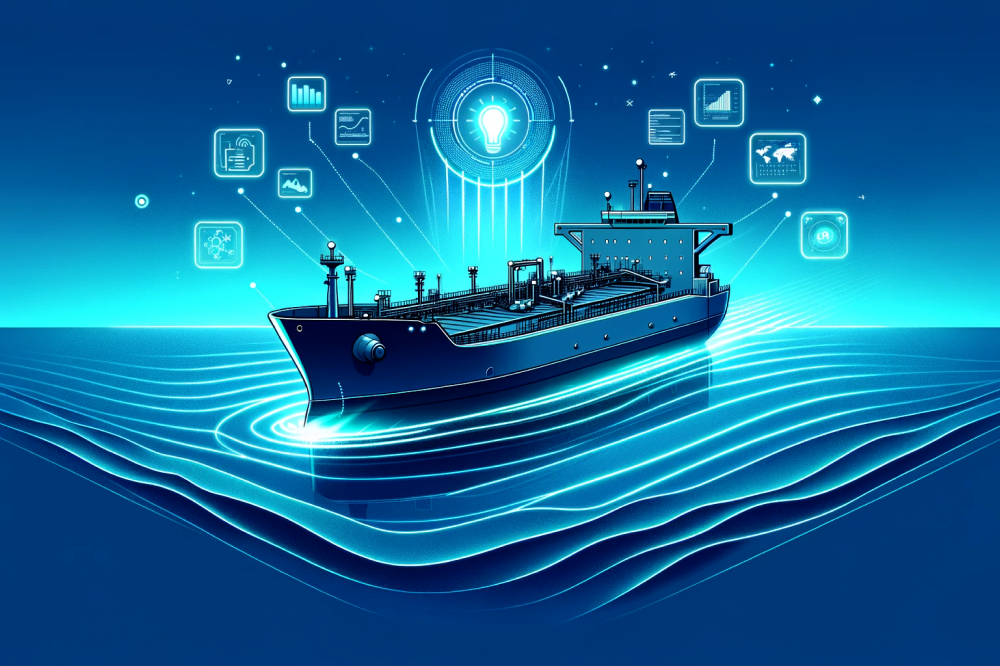
Did you know that 68 flag states have vessels in the Black Sea region just now?
Numbers and statistics are powerful tools. Together with other knowledge and an analytic mindset, where you also ask questions to verify data patterns, real-time data and statistics give you essential insights into your decision-making.
We have run some inquiries in our AIS database to show some of the insight maritime data can give to people interested in global trade and politics. Definitely relevant for those who have their daily work within the maritime industry but also for those who read the news and want a broader understanding of the news feed.
The AIS technology is old and was primarily invented for SAR operations. It was never meant to be for machine learning and market insight; thus, today, the AIS source has become an essential source for exactly that; market intelligence. AIS gives people transparency that we all should embrace. It is powerful when you can do real-time inquiries and monitor areas over time, and it is powerful when you combine different data sources to the AIS. In this blog post, we show you some maritime facts from the the waters nearby Ukraine and in the Black Sea.
Knowledge and data will create a better world! Create a free user account in ShipAtlas and start searching and exploring real-time maritime AIS data.
Did you know that just now (1st of March 2022 12:00), 68 FLAG STATEs have vessels in the Black Sea region?
The control of the Bosporus (Turkish Straits) has been an important part of the Black Sea geopolitics for centuries. Now Turkey has decided to shut the Turkish Straits to Russian warships pursuant to the 1936 Montreux Convention. In a way we can say that Turkey has been given a global key to the Black Sea, so Turkey must balance its power with common sense and a willingness to contribute to peace and not conflicts. So a decision to block Russian war ships to enter the Black Sea, will be a debated historical decision, now and in the future.
So at a glance into our AIS data, we can find that 68 flag states are present in Black Sea, showing the Black Sea is a major region for global trade and transport.

The Turkish Straits is important for global shipping routes, and there are many more important global passages for global shipping which we want to keep open and in peace and harmony. There are the Panama canal, the Suez canal, the Skaw, the Bay of Aden, Singapore, the Strait of Hormuz, South China Sea, the Northern Sea Route, etc. and all these regions and passages have in common, that they played a vital role for the global maritime transport, they have in the past and they will in the future. So when some of these passages are blocked or congested, it immediately have an effect on the maritime transport.
All types of vessels are trading in this region just now
Approx 3,000 vessels operate on a daily basis in these waters!

In the ShipAtlas you can also split the main segments into sub-segments, and under "others" you will find a variety of vessels types such as; Asphalt bitumen tankers, bunker barges, tugs, fishing vessels heavy lift, reefer, LNG Bunker tanker, COs gas carrier, well boats etc. All the vessels in ShipAtlas have a valid IMO and MMSI number. In ShipAtlas you will find vessels in operations (vessels which our satellite providers have seen during the last 3 months). We sync our servers with these satellites every 10th minute.
The vessels came to the Black Sea from more than 62 different countries and from more than 230 different ports!
These vessels traded all sorts of commodities; crude, products, LNG, LPG, car, grain, steel and steel products, urea, coal, iron ore, animals, clothes, milk etc.

The average size of the vessels trading in the Black Sea regions is approx 16,500 dwt!
The smallest vessel is a tug of 14 dwt built in 1989. The largest vessel is a bulk carrier of 211 182 dwt built in 2017.
The age of the fleet trading there is on average 26 years!
The oldest vessel is an passenger vessel built in 1915, and some of the youngest are the two Havila Voyages ships (Norwegian shipowner) that just have been launched:

The maritime trade and transport is the "peace vein" in the world.
This business might need a nudge to focus more on the environment and to reduce carbon emissions, but it has brought prosperity, exchanged knowledge and culture know-how between countries, businesses and individuals. The industry has created friendships between countries and individuals, and lifted billions of people out of poverty, and we don't want a war in the Black Sea and in Europe.

No country has the right to invade another country, no matter what the reason or the case may be.
However, when you read news feeds these days, remember the power of the "media algorithms". Search for and read information on different pages. Read articles also written by those who share different opinions than you, and remember to study the history. Take your time to do some research on your own, and do not only read the tabloid headlines, and finally let's protect the democracy and let's make peace.
Stay up to date on the situation in the Black Sea by creating a free user account in ShipAtlas.
....
Links to some blog posts that might be of interested for you:
Can Turkey Close the Turkish Straits to Russian Warships?
The Ukraine crisis is a major challenge for China
Putin is trying to take down the entire world order, the veteran Russia watcher said in an interview















